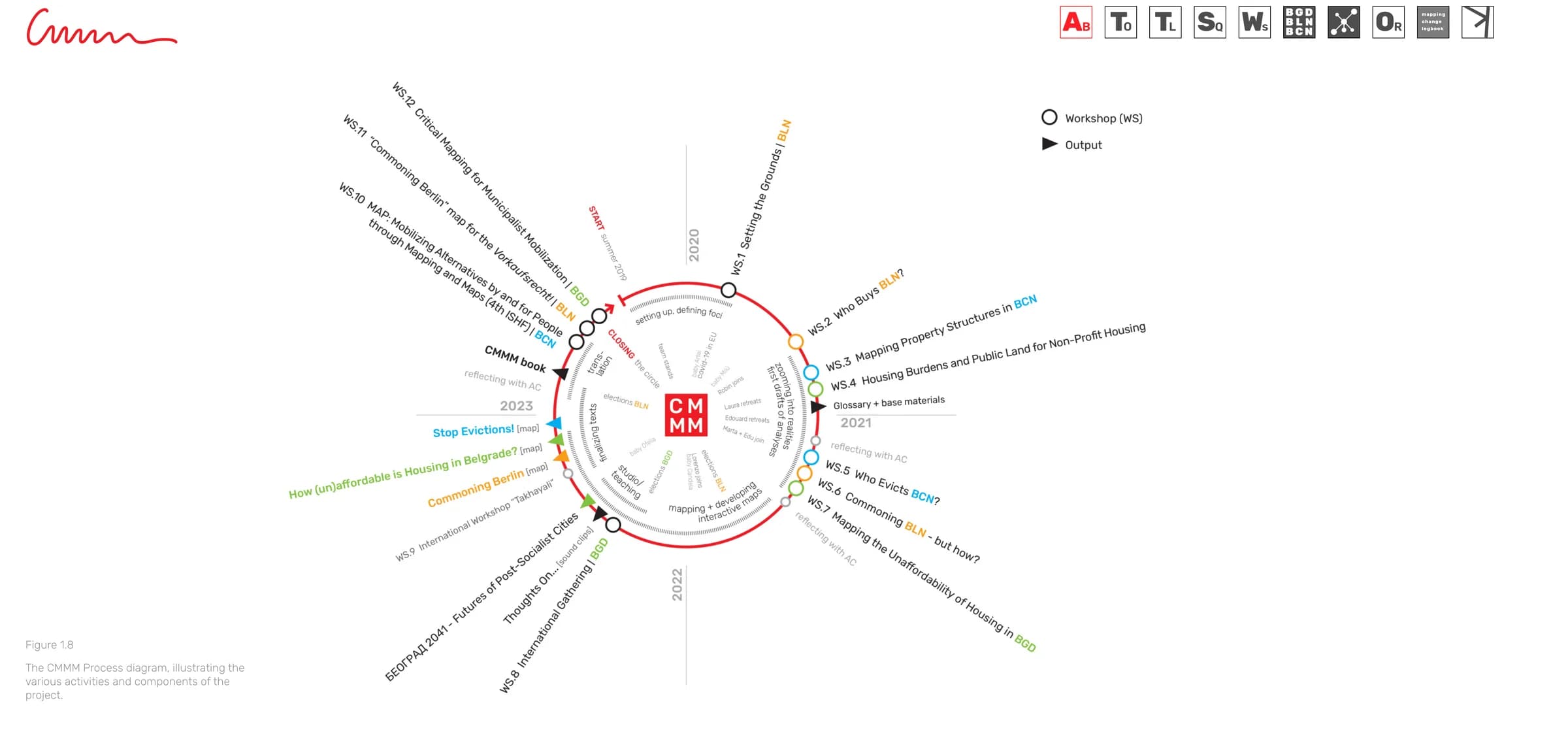The CMMM (Critical Mapping for Municipalist Movements) project is a practice-oriented research initiative designed to support civil society actors in their pursuits for just societies and cities through political transformation. This project emphasizes critical mapping as a tool for empowerment, allowing communities to reshape narratives and discourses around urban issues. Conducted over 3.5 years and involving collaborative research in three cities—Barcelona, Belgrade, and Berlin—the project highlights the significant role of municipalist movements in challenging established political structures.
Key findings reveal a strong emphasis on the democratization of mapping technologies, which have traditionally been elitist. By making these tools accessible, the project aims to empower communities to visualize complex urban issues effectively and advocate for necessary changes. It identifies housing as a central theme due to its universal relevance and the urgent need for reform across the three cities. Issues such as housing affordability, evictions, and the financialization of real estate are explored in depth.
The context surrounding the CMMM project began at a Robert Bosch Stiftung event in December 2017, initiated by a team of researchers and activists. The project received funding from the Robert Bosch Stiftung and was further supported by K LAB at TU Berlin. Key figures involved include Julia Förster, Julita Skodra, Katleen De Flander, Natasha Aruri, and Andreas Brück.
City-specific insights reveal unique challenges faced by each location. In Belgrade, the housing crisis is exacerbated by neoliberal policies and a high percentage of privately owned housing. The Ministry of Space collective is actively working to address these issues through critical mapping and advocacy efforts. In Berlin, where a majority of the population are tenants, challenges related to gentrification and affordable housing are prevalent. Civic initiatives are advocating for Gemeinwohl-oriented governance to counter neoliberal trends.
Barcelona presents a dynamic political environment where the housing crisis is significantly influenced by tourism-driven demand and insufficient tenant protections. Local movements are actively advocating for more robust public housing policies, reflecting the city's proactive stance on addressing these pressing issues.
The methodology employed by the CMMM project involved collaborative workshops, mapping exercises, and the development of interactive tools designed to visualize urban data. These activities were guided by principles of feminist data visualization, emphasizing pluralism, empowerment, and context sensitivity. The project serves as a model for how critical mapping can effectively support municipalist movements in tackling urban challenges related to housing and beyond, while fostering international collaboration among activists and researchers.
Overall, the CMMM project highlights the importance of local context and showcases the potential for critical mapping to impact urban governance positively. Through its findings, it contributes valuable insights into the ongoing discussions surrounding sustainable housing and the transformative power of community engagement in addressing urban issues across Europe.
